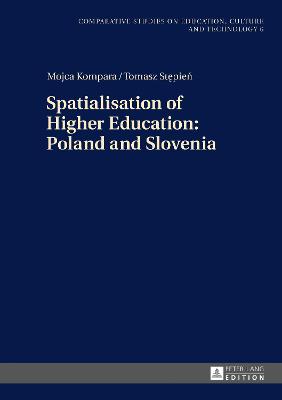Studies on Culture, Technology and Education
3 primary works
Book 2
Book 5
Book 6
Spatialisation of Higher Education: Poland and Slovenia
by Mojca Kompara and Tomasz Stepien
The book focuses on European Integration in the Field of Higher Education and Research, as well as the Implementation of the Bologna Process in Slovenia. The common policy of higher education and research belongs to the most important fields in the process of European integration and to the constitutive elements of the European Union. The authors analyse the process constituting the framework of higher education and research policy in Poland and Slovenia. The book analyses the political process of transformation within these two member states of the EU and exemplifies their plurality and specificity which are integrated in the genuine European idea of education, science and the research community.

